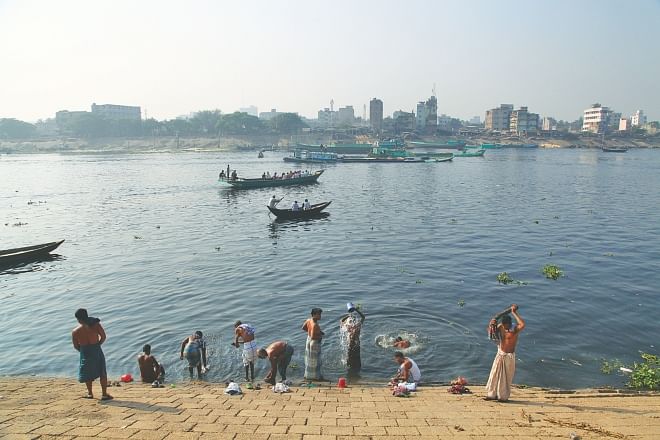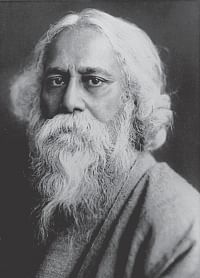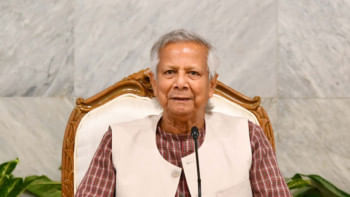For water sovereignty

"Water has encircled the rugged earth as if in an embrace. The earth does not understand the innermost mysteries of the ocean. Water does not grow crops but in its absence, the earth would not have one blade of grass"- Rabindranath Tagore (Learning from Nature- Remembering Tagore, by Navdanya).
These words, written over a century ago, reflects a deep understanding of human nature that predicts the flaws in our nature which enable us to exploit our natural resources with inadequate plans for the future.
In the 21st century, water has become even more commercial a product than oil was in the previous century. A rising population in our country and ever changing lifestyles has lead to the increase in the need for fresh water. The intense competition between the agriculture, industrial and domestic sectors for the use of water has also lead to the ground water level being pushed deeper down.
There are more than 700 rivers in Bangladesh, yet fewer than one percent of the rural population have access to clean water (Global One 2015). 80 percent of the water supply is used in farming. Since the 1970's, the number of tube wells in Dhaka has increased by a 1000 percent. Dhaka alone now needs 2.2 billion litres of water a day, the supply of which falls short by 200 million litres a day or more.

The government has shown some initiative toward the improvement of water conservation by recently publishing the Water Act 2013. This Act recognises the importance of managing all forms of water resources in terms of natural flow of surface water and the revival of groundwater. It provides a framework for development, extraction, management, usage, protection, distribution and conservation of water resources. However, some areas of concern are ambiguous in the Act, such as the maximum amount of water that can be allocated toward the private sector and clear directives as to the recovery of flood zones from land grabbers and encroachers, which are serious weaknesses that must be addressed.
On an individual level, we can conserve water by maximizing soil moisture from rainwater, planting crops that need less water than the traditional rice paddy, using surface rather than ground water. We can also stop using ponds as our personal bathrooms and trashcans and protest industrial pollution in our water bodies. On a smaller scale, we can take shorter showers, put a few buckets on the roof when it rains to collect water, turn off every tap after use and make sure our pipes are not leaking.
This monsoon, let us remember the wise words of Tagore and take steps towards protecting a very valuable, fast diminishing natural resource.

 For all latest news, follow The Daily Star's Google News channel.
For all latest news, follow The Daily Star's Google News channel. 



Comments